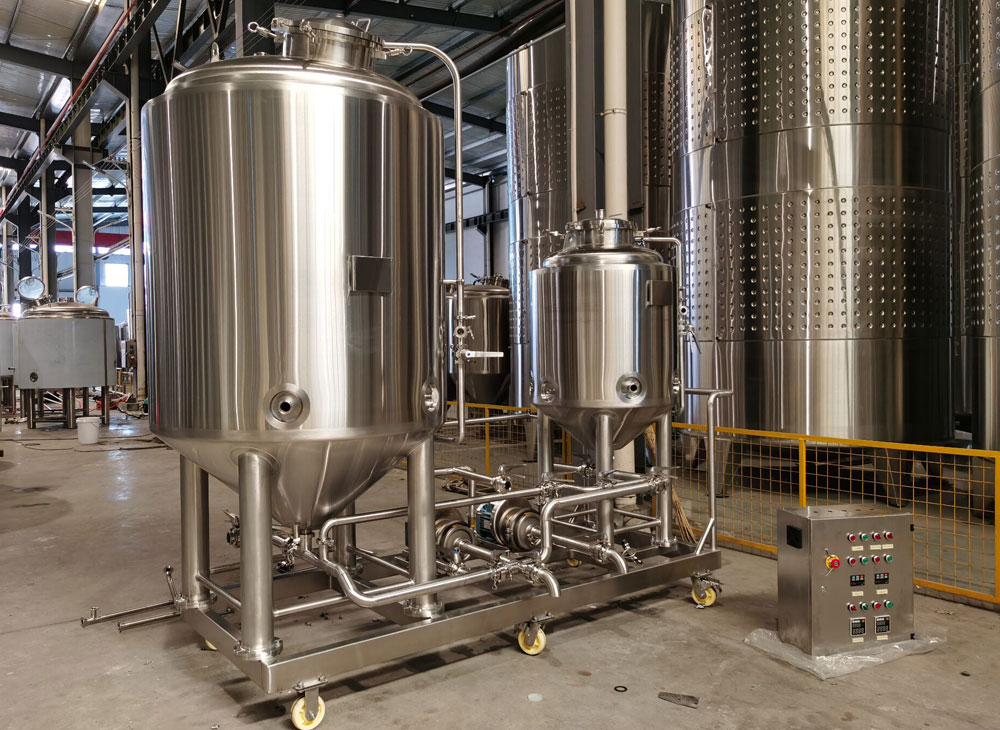Brewing kombucha commercially involves scaling up the home brewing process while adhering to strict health and safety regulations. Here’s a comprehensive guide to get you started:Step-by-Step Guide to Commercial Kombucha Brewing

1. Regulations and Licensing
- Research Local Regulations: Understand the local, state, and federal regulations governing the production and sale of kombucha.
- Obtain Necessary Permits: Apply for the necessary food production permits and licenses.
- Compliance: Ensure your facility complies with food safety standards, including the Hazard Analysis and Critical Control Points (HACCP) system.
2. Facility and Equipment
- Facility: Find a suitable commercial kitchen or facility that meets health and safety standards. It should have adequate space for brewing, fermenting, bottling, and storage.
- Fermentation Vessels: Invest in large-scale fermentation tanks (stainless steel or food-grade plastic).
- Brewing Equipment:
- Large brewing kettles or tanks
- Industrial tea brewing and steeping equipment
- Cooling Systems: For quickly cooling the brewed tea before fermentation.
- Filtration Systems: To ensure the tea is free of impurities.
- Bottling Line: Automated bottling, capping, and labeling machines to ensure efficiency.
- Temperature and Humidity Control: To maintain optimal fermentation conditions.
3. Ingredients
- Tea: Purchase high-quality tea in bulk.
- Sugar: Buy sugar in bulk. Organic cane sugar is a popular choice.
- SCOBY: Maintain a healthy, large-scale SCOBY or source it from a reputable supplier.
- Starter Tea: Reserve kombucha from previous batches or source it from a reliable supplier.
4. Brewing Process
- Brew Tea: Brew large quantities of tea using your industrial brewing equipment.
- Add Sugar: Dissolve the sugar completely in the hot tea.
- Cool the Tea: Rapidly cool the tea to room temperature using your cooling system.
- Mix Ingredients: Transfer the cooled tea to the fermentation vessels and add the starter tea and SCOBY.
- Ferment: Allow the tea to ferment for 7-21 days, depending on desired flavor and acidity. Maintain a consistent temperature (70-80°F or 21-27°C) and monitor pH levels.
- Monitor and Test: Regularly test for pH and taste to ensure consistency. The ideal pH range is 2.5-3.5.
5. Flavoring and Bottling
- Flavoring: If desired, add natural flavors, fruits, or herbs to the kombucha after the initial fermentation.
- Second Fermentation: Transfer the flavored kombucha to bottles for a second fermentation to build carbonation. Seal the bottles and store them at room temperature for 1-3 days.
- Cold Storage: Move the bottled kombucha to a refrigerated storage area to stop fermentation and preserve flavor.
6. Quality Control
- Testing: Regularly test batches for alcohol content, pH, and microbial activity to ensure safety and compliance.
- Consistency: Implement rigorous quality control procedures to maintain batch consistency.
7. Packaging and Distribution
- Labeling: Ensure labels comply with local regulations, including ingredients, nutritional information, and potential allergens.
- Packaging: Use appropriate packaging materials to ensure the product remains fresh during transportation and storage.
- Distribution Channels: Establish relationships with distributors, retailers, and direct-to-consumer platforms.
8. Marketing and Sales
- Branding: Develop a strong brand identity, including logo, packaging design, and marketing materials.
- Promotion: Utilize social media, in-store tastings, and events to promote your kombucha.
- Customer Engagement: Engage with your customers through various channels to build a loyal customer base.
Additional Considerations
- Insurance: Obtain adequate insurance coverage for your business.
- Staff Training: Train your staff in food safety, brewing techniques, and quality control.
- Sustainability: Consider sustainable practices in sourcing ingredients, packaging, and waste management.
By following these steps and maintaining high standards of quality and consistency, you can successfully brew and sell kombucha commercially. We supply the following equipment like kombucha brewing equipment, kombucha boiling machine and fermenter, kombucha top open fermenter, kombucha filter, kombucha filling machine. If you need them, please feel free to contact us.
Ms. Ivy Liang
Email: [email protected]
www.brewerybeerequipment.com



.jpg)
.jpg)
.jpg)

Get In Touch